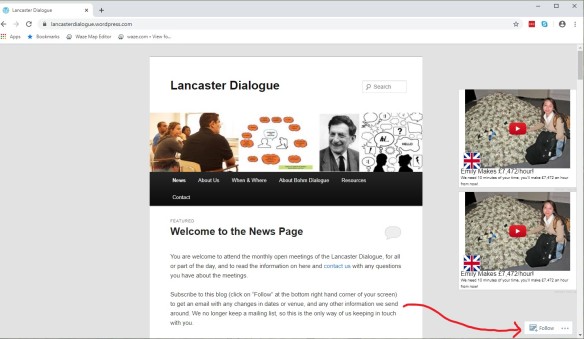You are welcome to attend the meetings of the Lancaster Dialogue, for all or part of the time, to listen or speak as you wish, and to read the information on here and contact us with any questions you have about the meetings.
We are currently meeting on Zoom, usually on the first and third Saturdays of each month, beginning at 10.15am for 10.30am UK time, with a break around noon, and finishing at 1.30pm, often with some “informal” chit-chat afterwards.
Subscribe to this blog (click on “Follow” at the bottom right hand corner of your screen) to get an email with any changes in dates or venue, and any other information we send around. We no longer keep a mailing list, so this is the only way of us keeping in touch with you.

